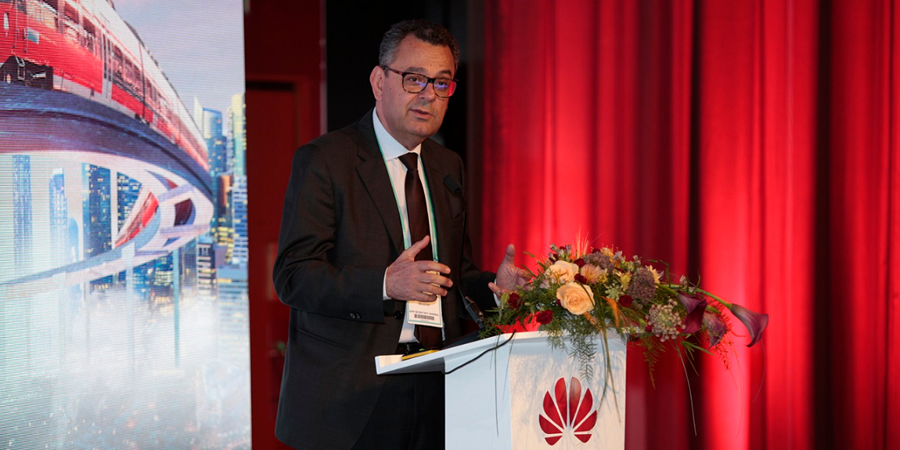Huawei, a leading global provider of information and communications technology (ICT) infrastructure and smart devices, has officially launched a series of ICT solutions in line with the needs of urban connectivity in the digital era.
For fully-connected rail transportation, Huawei released its Urban Rail Light Cloud, 5G Digital Indoor System (DIS) solutions, as well as LTE-Railway (LTE-R) Solution which were jointly released with Tianjin 712 Communication & Broadcasting Co., LTD. (TCB 712) for next general rail wireless communications at the UITP Global Public Transport Summit 2019.
Under the theme "Cloud-Based Urban Rail, the Art of Mobility", the company outlined how a new breed of ICT solutions will enable an era of fully-connected, digital rail transportation.
The solutions deliver cloud-based services, broadband connectivity, and better-connected digital railways to help rail operators build safer, smarter, and more efficient rail transportation systems, continuously improve transportation capacity and drive service innovations.
Eman Liu, President of the Global Transportation Business Unit of Huawei Enterprise Business Group, commented: "Rail transportation is a complex system that involves railways, vehicles, AFC, and signals.
For a seamless, interconnected environment across this system, rail operators need communications devices to collect data and digital platforms that integrate cloud, IoT, big data, and AI to ensure secure, reliable and efficient operations. Huawei aims to help rail customers achieve digital transformation by offering the Urban Rail Cloud and rail operation communications solutions, as well as collaborating with global partners to move railways into the future."
Digital urban railway can enhance the customer experience in rail journeys. Mohamed Mezghani, Secretary General of UITP said: "A high quality public transport needs a double priority: both physical and digital infrastructure."
With over 20 years of experience, Huawei has provided products and services for 120,000 km of railways and more than 100 urban tracks in the world.
Based on in-depth understanding of rail customer needs, Huawei has been continuously exploring the application of new technologies in the industry, such as 5G, cloud, big data, and AI.
Together with partners, Huawei is developing solutions to help customers improve operational efficiency, revenue, and passenger services.
Urban Rail Light Cloud Solution: Leveraging advanced virtualization technologies, this solution converts computing, storage, network, and security resources from physical devices into virtual resource pools. These resources are then allocated to application systems through virtual hosts, virtual network devices, and virtual security devices. It enables the integration of data center devices, and lowers device procurement and deployment costs. Featuring high adaptability and flexibility, this solution is suitable for rail transportation with low and medium passenger capacity (E.g. light rail, monorail, tram, maglev system, and urban rapid rail). Additionally, it can be applied to one single scenario of urban rail cloud services (ISCS/TIAS, ACC/MLC convergence center, and road network application cloud), and supports smooth expansion to converged clouds and urban rail clouds.
Next-generation LTE-R Solution: Huawei LTE-R Solution has been fully verified by partners and customers, and is being deployed in China. The solution supports 5G-oriented evolution and interconnectivity with GSM-R. Its advanced features include multiple trunking services such as Mission Critical Push-to-Talk (MCPTT) voice, video, and data, and leveraging one LTE-R network to enable train control, train dispatching, passenger information system (PIS), CCTV, and other rail services. Together with 5G, the solution will enable a future of intelligent railways where all things are connected.
5G DIS Solution: Huawei launched 5G LampSite, a leading 5G network solution for smart transportation hubs. As part of the DIS solution, 5G LampSite uses multiple advanced technologies to support both LTE and 5G, and allow easy installation and simplified O&M. It lays the foundation for smart transportation hubs by offering intelligent communications services for a large number of passengers and enabling smooth and efficient passenger flow management, security checks, and ticketing.










